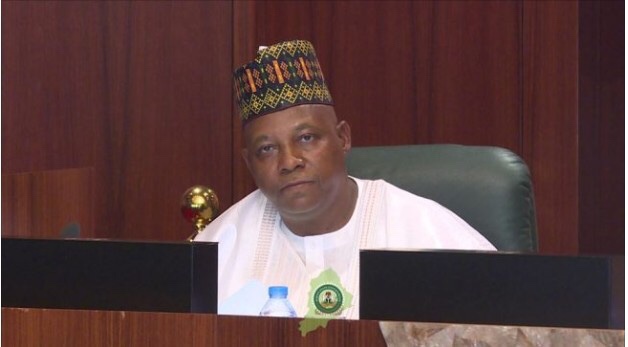Vice President Kashim Shettima on Sunday said military offensives alone could not sustainably resolve the security crisis in Nigeria’s Northwest.
He said, rather, it would take a mix of kinetic and non-kinetic strategies to restore calm in the troubled region.
“Unless we want to engage in an endless war of attrition, there cannot be a military solution to the crisis in the northwest. There has to be a kinetic and non-kinetic solution,” Shettima said in a chat with journalists when he paid condolence visits to the Galadanci and Mangal families in Kano and Katsina, respectively.
The State House Director of Information, Office of the Vice President, Olusola Abiola, revealed this in a statement he signed on Sunday titled ‘President Tinubu’s solution to insecurity, poverty in northern Nigeria underway, says VP Shettima.’
The Vice President revealed that the Tinubu administration will, in the coming weeks, unveil an initiative to address insurgency and poverty, among other challenges confronting Nigerians, especially those living in the northern region.
“In the next couple of weeks, we will unveil the Pulaaku solution, which will address the grievances and social exclusion of our Fulbe cousins in the northwest and also towards addressing the root causes of all the banditry and insurgency in the nation,” he explained.
Pulaaku also called the “Fulani code of conduct,” is an integral cultural and ethical value system specific to the Fulanis.
Encompassing a broad range of norms, behaviors, and social practices seen as distinctly Fulani, Pulaaku is a major factor binding Fulanis together across different regions, despite linguistic and regional variations.
Central to Pulaaku are the concepts of patience, self-control, discipline, prudence, modesty, respect for others (including enemies), bravery, courage, hard work, and wisdom.
Thus, maintaining a calm and composed demeanor, especially during periods of difficulty and adversity, is highly valued.
Adherents are not to openly display emotions such as anger or pain. This is tied to the Fulani ideal of munyal, which signifies endurance, patience, and self-control.
On the plan to address challenges confronting Nigerians, the VP said, “The President is determined to define the meaning and concept of modern governance and the crisis we have in the northwest, which is further accentuated by poverty.”
He added that “The social exclusion is also something that the President is determined to confront frontally and in the coming weeks, he is going to unveil the Pulaku solution.”
Earlier on arrival in Kano, the Vice President, who was received by Governor Abba Yusuf, proceeded to the residence of the Emir of Bichi, Nasiru Ado Bayero, where he commiserated with him on the passing of the late Imam Galadanci, expressing President Tinubu’s condolences.
From the Emir of Bichi’s residence, the VP proceeded to the family compound of the late Abubakar Galadanci, where he was received by Prof. Shehu Galadanci and Air Vice Marshal Nura Imam (retd) on behalf of the extended family.
The Vice President, on behalf of President Bola Tinubu, expressed his condolences and prayed to Allah to grant the deceased eternal rest as well as console the entire Galadanci family.
Prof Galadanci, who thanked the Vice President for the visit on behalf of the family, stressed the need for unity of purpose among northern leaders and urged Nigerians to always support the Tinubu administration in prayers and otherwise for the success of its programmes and policies.
From Kano, Shettima departed to Katsina to condole renowned businessman Dahiru Mangal over the demise of his first wife, Aisha Dahiru, who died Saturday evening in Abuja after a brief illness.
Mangal has since been buried according to Islamic rites.
VP Shettima was accompanied by the Deputy Senate President, Sen. Barau Jibrin, a member of the House of Representatives from Kano, Abdulmumin Jibrin, and Senior Special Assistant to the President on Political Matters, Ibrahim Masari.



